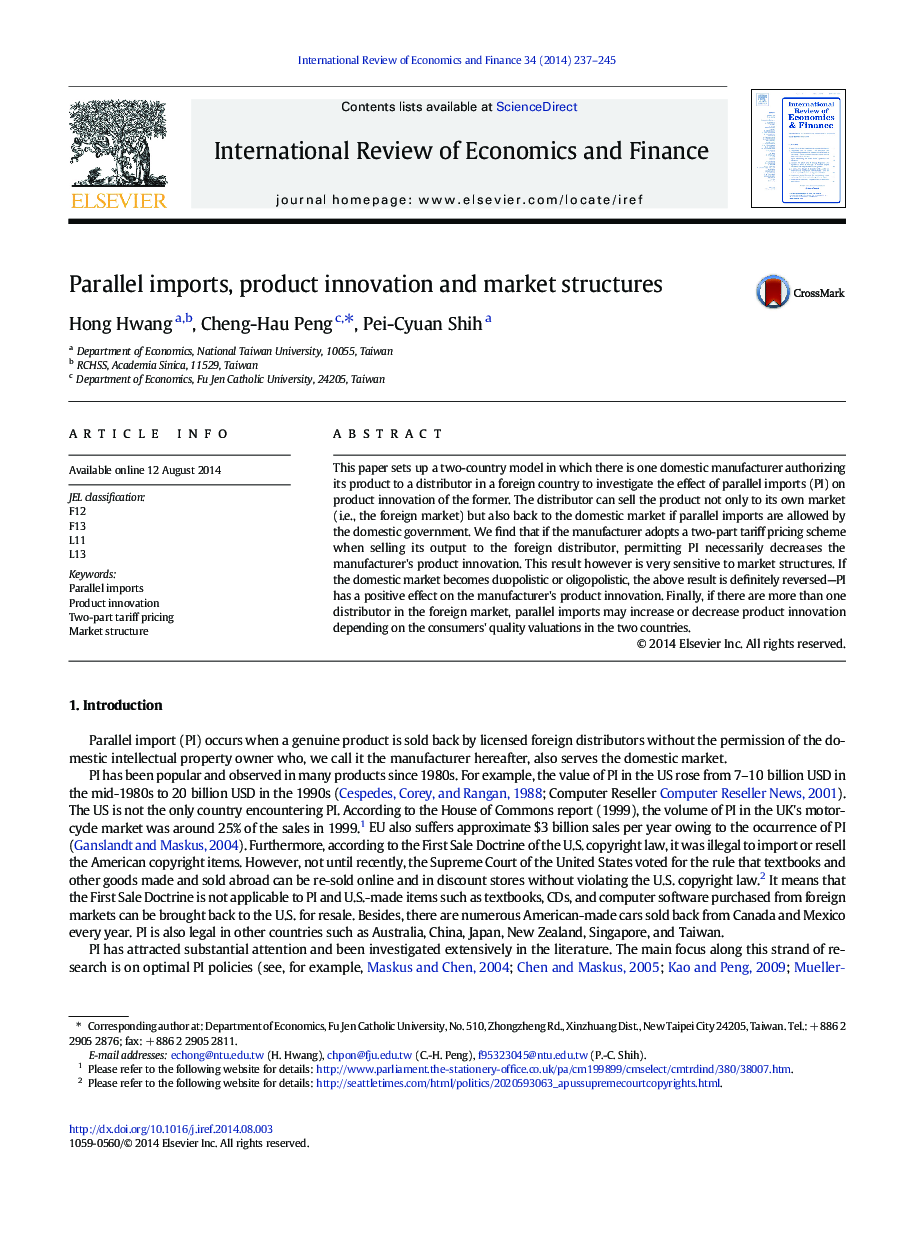| Article ID | Journal | Published Year | Pages | File Type |
|---|---|---|---|---|
| 5083597 | International Review of Economics & Finance | 2014 | 9 Pages |
Abstract
This paper sets up a two-country model in which there is one domestic manufacturer authorizing its product to a distributor in a foreign country to investigate the effect of parallel imports (PI) on product innovation of the former. The distributor can sell the product not only to its own market (i.e., the foreign market) but also back to the domestic market if parallel imports are allowed by the domestic government. We find that if the manufacturer adopts a two-part tariff pricing scheme when selling its output to the foreign distributor, permitting PI necessarily decreases the manufacturer's product innovation. This result however is very sensitive to market structures. If the domestic market becomes duopolistic or oligopolistic, the above result is definitely reversed-PI has a positive effect on the manufacturer's product innovation. Finally, if there are more than one distributor in the foreign market, parallel imports may increase or decrease product innovation depending on the consumers' quality valuations in the two countries.
Related Topics
Social Sciences and Humanities
Economics, Econometrics and Finance
Economics and Econometrics
Authors
Hong Hwang, Cheng-Hau Peng, Pei-Cyuan Shih,
